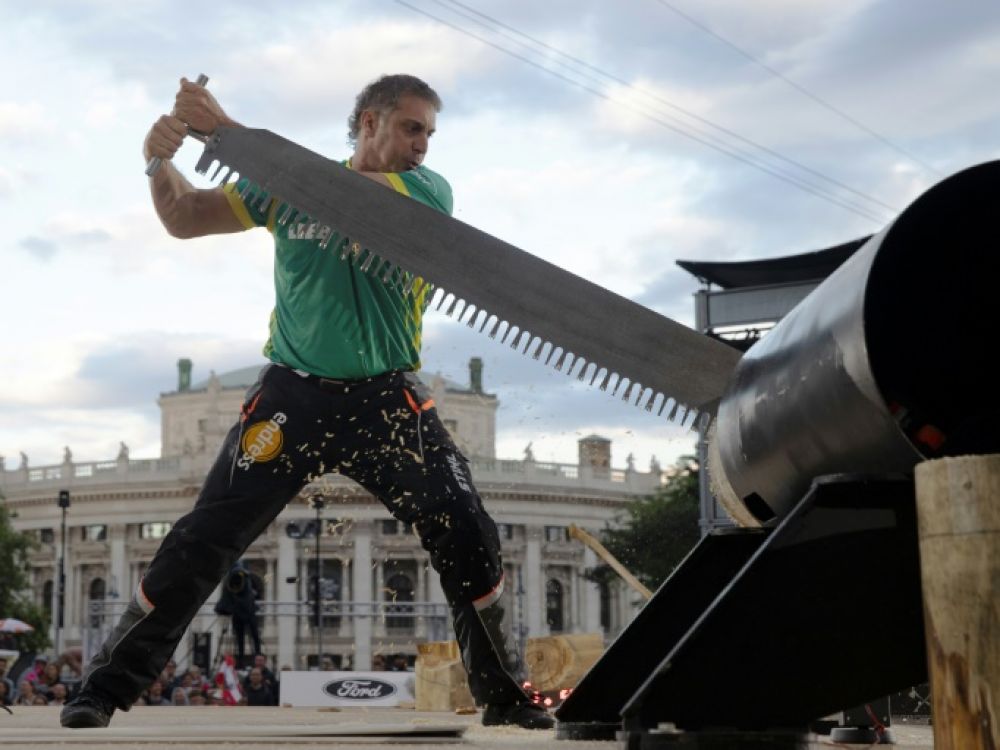
At the foot of the Vienna City Hall, the lumberjacks put on their show
In just over a minute, they cut wood with axes, saws, and chainsaws: 16 athletes competed this weekend in Vienna for the title of champion of an unusual discipline, the sport of logging.
“Most of them are loggers or come from a forest environment,” explains Jean-Noel Raynaud, Timbersports director at Stihl France, the competition’s organizing company.
Marcel Dubuis, a 36-year-old Canadian, with a weight of 110 kg for 1.80 meters, has been immersed in this universe since childhood.
“I’ve always been interested in this sport because I cut wood all my youth,” he says. And before him, “several generations” lovingly treated this material.
“It’s something I would pass on to my children. It’s part of life, of nature,” this professional firefighter continues, adding that the trunks of poplar and white pine trees are systematically recycled after competitions.
Frenchman Pierre Boyarette also remembers the wood that he collected with his parents in his native region of Correz.
If he later became a mechanic in hydraulics, he discovered sports logging in 2010 and quickly became addicted to this demanding system to be “strong and technical.”
The 35-year-old athlete “loves a variety of events”, including the spectacular “jumping platform” where competitors, combining dexterity and a sense of balance, climb to the top of a 2.80-meter box when using planks installed in the crevices.
“It’s a whole sport, like biathlon,” explains the six-time French champion, who now lives in Isere.
In France, the practice remains clandestine, with “80 to 100 licensees” spread across seven clubs, from Alsace to the Pyrenees, according to Mr Raynaud.
“We can’t live on it because the rewards are not big enough,” laments Pierre Pouillet, who also had to set up a training ground and must “bring a lumber truck at the start of the season”.
Australia, where the sport was born, New Zealand, the United States and Canada, says Christopher Burgorst, a spokesman for Timbersports, is doing better and is among the greatest champions.
Dominance reflected in the World Cup classification, which was won by New Zealander Jack Jordan on Saturday evening, ahead of American Jason Lintz and Australian Brad de Lusa.
In these countries, “logging has a long tradition going back to the 19th century, hence its name as the number one extreme sport ever,” Burghurst says, and it didn’t begin to conquer from Europe until much later.

“Organizer. Social media geek. General communicator. Bacon scholar. Proud pop culture trailblazer.”
